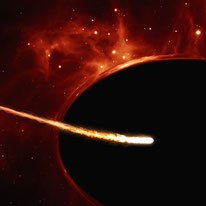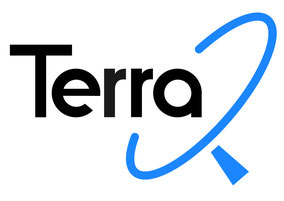research
The research of me and my group is about General Relativity and alternative theories of gravity. I am interested in the motion of particles and fluids as well as the timing of clocks in strong gravitational fields, as you find them close to black holes or neutron stars. Down to Earth, I am also working on relativistic geodesy, including the usage of clocks to measure the height.
topics

accretion disks
Astronomical objects are often surrounded by matter, which forms a disk like structure. Over time the matter falls onto the central object, a process which is known as accretion

clocks
According to Special Relativity, the rate of clocks depends on their state of motion. General Relativity predicts in addition that clocks in gravitational fields run slower.

relativistic geodesy
The idealized geometric shape of the Earth, the geoid, can be determined using clocks. Relativistic effects on satellites need to be taken into account for determing the gravitational field of the Earth.

probing the spacetime
With particle or fluid motion as well as clock effects the spacetime of strong gravitational fields can be tested. Observable effects include for instance the periastron shift.
publications


collaborations
The collaborative research center TerraQ - Relativistic and Quantum-based Geodesy is a multidisciplinary research programme funded by the German Research Foundation (DFG). We aim to advance quantum-based measurement concepts for monitoring mass changes from space and on ground, combined with the corresponding data analysis and modelling, in order to provide sophisticated tools that significantly enhance our knowledge on the involved change processes in the system Earth. I am Principal Investigator of the project C03 - Relativistic Geodesy from Space Using Novel Measurement Concepts

The Cluster of Excellence QuantumFrontiers, funded by the German Research Foundation (DFG), develops new measurement concepts and sensor topologies based on photonic systems, dedicated semi-conductor systems, nanostructures, quantum-manipulated atomic and molecular ensembles, and even macroscopic objects. One application of these developments is the test of fundamental physical processes and theories. I am the leader of the topical group Test of fundamental physics - gravity.

The research unit Clock Metrology: A Novel Approach to TIME in Geodesy funded by the German Research Foundation (DFG) aims towards a highly accurate long-term stable realization of the geodetic reference systems by linking the geometric systems to time. We want to exploit the great opportunity of the introduction of optical clocks and long distance optical fiber lines for time and frequency transfer to space geodesy. I am Principal Investigator of the project P4 - General relativity and coherent time. This project provides the relativistic theory for the research group dedicated to time in geodesy.
